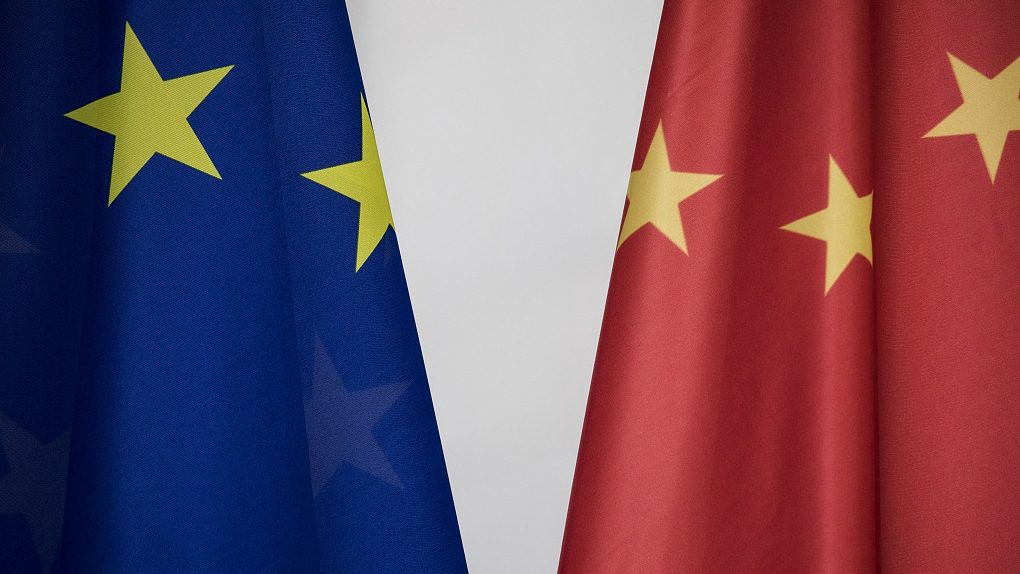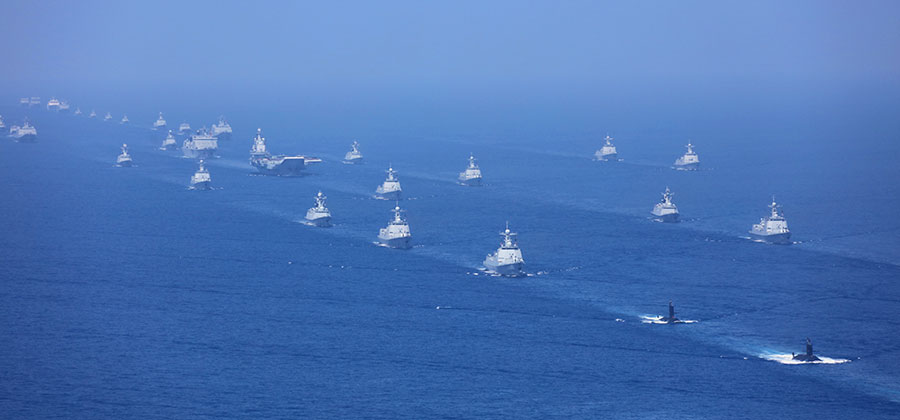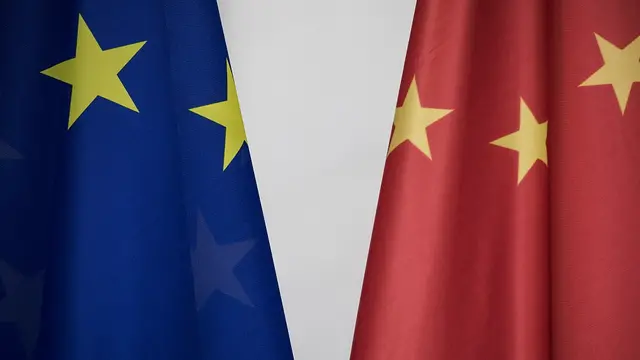
**Editor's note: **Andrew Korybko is a Moscow-based American political analyst. The article reflects the author's views and not necessarily those of CGTN.
EU Ambassador to China Nicolas Chapuis was extremely undiplomatic when discussing the country that he's supposed to cultivate relations with on behalf of the bloc while speaking at an energy forum in Beijing. He wrongly described China's global outreach strategy as being characterized by "bullying and intimidation, coercive diplomacy, (and) 'wolf warrior' diplomacy." The EU's top representative to China also proposed that the 27-member bloc that he represents team up with the U.S. to counter Chinese diplomacy. On top of that, Chapuis even suggested working with ASEAN, Australia, and New Zealand in the South China Sea.
Not only did the EU Ambassador mischaracterize Chinese diplomacy, he also made it seem like the country is arrogantly rebuffing attempts to cooperate with it when he suggested "Let's cooperate with China as much as we can, when we can, when China is ready to cooperate." Chapuis is wrong since China has always sought to cooperate with others. It's China that's been rebuffed by some and not the reverse when finding common ground. Because of his global diplomatic influence, his words must be thoroughly debunked to set the record straight.
Framing China's defensive military and political reactions to U.S.-led regional aggression in the South China Sea as "bullying and intimidation" is intended to place all the blame on Beijing. It ignores China's legitimate interests in this region, which has always historically been under its influence and deceitfully portrays its intentions as hegemonic. By contrast, the U.S. and its allies that infringe on China's rights there are portrayed as doing the right thing and following international law even though they arguably aren't. It's they who are resorting to bullying and intimidation, not China.
As for coercive diplomacy, China has never used such means in any of its relations with its partners. The U.S., however, has a long track record of imposing ultimatums on others that are then backed up by credible threats of sanctions and even sometimes the use of force. Not only that, but the U.S. has even carried out dozens of regime changes across the world over the past seven and a half decades since the end of World War II to force countries into submitting to it. China, meanwhile, only entered into voluntary partnerships with others that are geared towards mutually beneficial outcomes without threatening them if they decline its outreach.

China's aircraft carrier, the Liaoning, submarines, vessels and fighter jets take part in a review in the South China Sea, April 12, 2018. /Xinhua
On the topic of "wolf warrior" diplomacy, this is rapidly becoming a slur that exploits the popularity of a famous action film series of the same name to misportray all confident supporters of Chinese interests in the information sphere as aggressive. The innuendo is that "wolf warriors" will stop at nothing to defend their country. That, however, is not the Chinese style or tradition of soft power, though there's no doubt that the country's officials and average citizens alike will no longer leave any insults to their nation unanswered.
What Chapuis said about the South China Sea is the most dangerous of all, however, since the bloc has no business meddling in local affairs halfway across the world. The problems that several countries have with China's territorial claims to the South China Sea should be resolved between them. The interference of other regional powers in those disputes emboldens the other claimants and could ironically lead them to embody the exact same bullying, intimidation, and coercive diplomacy that the EU wrongly accuses China of practicing. China sincerely wants to resolve those issues with its maritime neighbors, but it's been rebuffed time and again.
Considering Chapuis' background as a Sinologist, he certainly knows better than to spread falsehoods about China. For this reason, observers are right to speculate that he had ulterior motives in uttering his undiplomatic remarks. It might therefore very well be that he's decided to jump on the U.S. anti-Chinese bandwagon out of the mistaken belief that it'll benefit the bloc, which would be an epic blunder if that's what he's indeed thinking. In any case, Chapuis must immediately apologize to the Chinese government and people otherwise bilateral relations with the EU might be at risk of worsening.
(If you want to contribute and have specific expertise, please contact us at [email protected].)
 简体中文
简体中文

